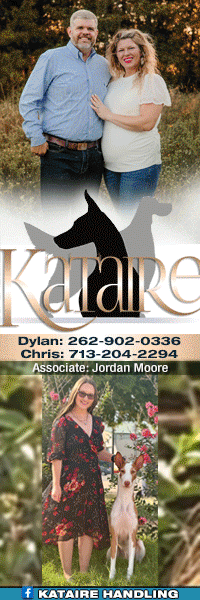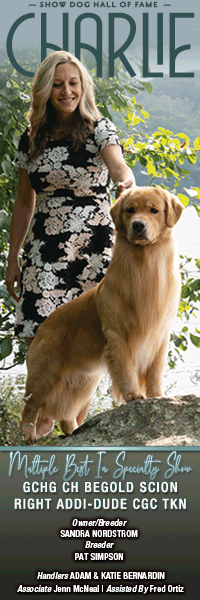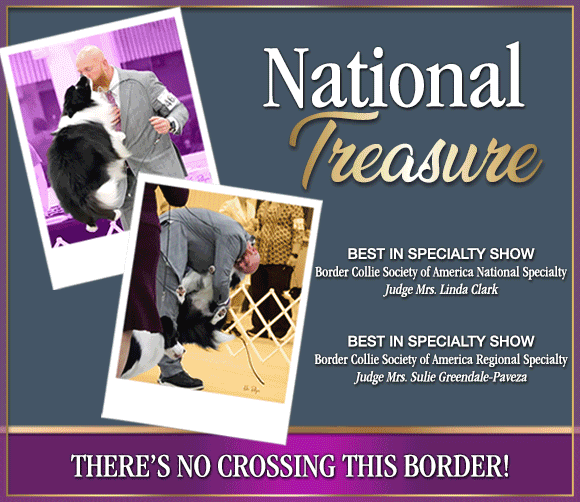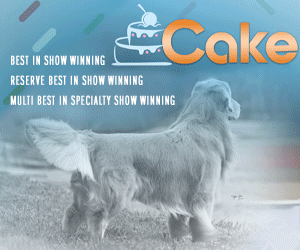From The CC Vault: Putting Our Best Words Forward
by Peri Norman
Originally published: October 2015
 I bought my first show dog in 1971. The world of dog shows and purebred dog breeders has been turned on its axis several times since then. Since my beginnings in purebred dogs, there has been a revolution in my thinking. Early in my time as a purebred fancier, I would look at a dog anywhere in public and mostly I would think something like, “Yikes! Look at that (fill in breed here). It’s a terrible dog. Its front is straight and its head is not right. Don’t these people know that this is not a very good dog?” Now, when I am out in public and I see a (fill in breed here), I think, “Wow! Look at that; a purebred dog! How cute is that!?!?” Now, instead of looking on with a furrowed brow, I smile and say, “Hey, what a nice dog!” The people usually respond with, “Yeah, he is a great dog. We love him.” Our world, indeed, has turned upside down. We find ourselves now in the fight of our lives to preserve our breeds and our sport.
I bought my first show dog in 1971. The world of dog shows and purebred dog breeders has been turned on its axis several times since then. Since my beginnings in purebred dogs, there has been a revolution in my thinking. Early in my time as a purebred fancier, I would look at a dog anywhere in public and mostly I would think something like, “Yikes! Look at that (fill in breed here). It’s a terrible dog. Its front is straight and its head is not right. Don’t these people know that this is not a very good dog?” Now, when I am out in public and I see a (fill in breed here), I think, “Wow! Look at that; a purebred dog! How cute is that!?!?” Now, instead of looking on with a furrowed brow, I smile and say, “Hey, what a nice dog!” The people usually respond with, “Yeah, he is a great dog. We love him.” Our world, indeed, has turned upside down. We find ourselves now in the fight of our lives to preserve our breeds and our sport.
From George Orwell to Solomon Asch to the journalists already following the presidential candidates, we know that “controlling the language” or “framing the debate” is critical to the success of any attempt to influence people’s opinions. If we are to survive and flourish in our purebred dog-related activities, we must change our thinking to embrace the new and constantly shifting realities of our world and we must be very thoughtful about the language that we use.
The number one word that must be eliminated from every single vocabulary is the term puppy mill. What we must understand is that there is a segment of our society that considers all of us puppy mills. Exactly how do we define “puppy mill”? The truth is that “puppy mill” is a nasty pejorative term slung at any dog breeder whom we dislike or fear. Think of it like our most offensive racial slurs. The level of hatefulness and negativity associated with these words makes their use incendiary and entirely inappropriate. It is critical that if we must use labels, we choose our words in a way that eliminates their inflammatory nature. While we may vary on the definition of these replacement words as well, the emphasis on thoughtful, non-emotional verbiage helps us to communicate more clearly; both with those within and outside the fancy.
Words that might replace “puppy mill” should include responsible dog breeder. A ‘responsible dog breeder’ is not someone who does things just like we do. In my mind, a responsible dog breeder is someone who keeps in touch with folks who have their pups and takes them back should the need arise. It’s that simple. We know that being a responsible dog breeder may include a whole lot more nuance than that. It involves studying dogs and pedigrees and breeding to maintain and strengthen breed attributes while minimizing the occurrence of health problems. It means screening puppy buyers and matching them to the right home. But wait, all of you who have never made a mistake, or God forbid multiple mistakes doing any of these things, raise your hand. Yeah, that’s what I thought. The truth is all these other things that we lump into our definition of responsible breeder are value-added components. If it is truly all about the dogs… if we stay in touch with our puppy people and support them through the tough spots… if we take back the dogs without blame or argument, and assure that they are well cared for, then and only then are we responsible breeders. All the rest is not unimportant, but it is part and parcel of keeping the emphasis on the dogs where it belongs.
Another word that might be used to replace puppy mill is high volume breeder. A ‘high volume breeder’ is a person (or perhaps a corporation) that produces a large number of dogs. We have an unwarranted obsession about people having too many dogs. Like the term “puppy mill”, “too many dogs” is a demeaning expression that often means that someone does things differently than we do. This is a relatively new development. No one to my knowledge ever accused Geraldine Rockefeller Dodge or Steve Field of having too many dogs. High volume breeders have a large number of dogs and produce significant numbers of puppies. That is not in and of itself a bad thing, particularly when they are purebred dogs. Many people have the resources including time, money and personnel to maintain large kennels and breeding operations. Some of them fall into the “responsible breeder” category and others do not, but that does not by definition make them a puppy mill. It is very hard for many of us to make this transition in our minds. We need context. The number of dogs in our shelters has been plummeting over the past several decades. In response to the empty kennel runs, numerous people and organizations have taken to rescuing dogs from other countries. Some estimates are that over 500,000 dogs a year are coming into the U.S. from foreign countries. Many of these dogs lack appropriate veterinary care before entering our borders. Documented cases of rabies in these animals are becoming more frequent. A new strain of dog flu has been imported onto our continent and will continue to spread amongst our dogs who have no natural immunity and with no vaccination yet available. Really, is a pup from a high volume breeder who provides reasonable, clean facilities and appropriate veterinary care that bad a deal? It certainly seems a far better choice for our pet owning public than a foreign street dog.
But what about those pictures we see in the ads and on TV of those sad, neglected dogs relegated to lives of kenneled filth and litter after litter of unhealthy pups? Those are substandard breeders. Numbers of dogs owned and puppies produced has nothing to do with the level of care. On the other hand, lack of resources and/or lack of motivation to appropriately care for any number of animals (even one) should be considered substandard. When the level of care drops low enough, it becomes abuse. It is a fact in our society that bad actions and poor decisions make news. People pay attention to the most heinous of crimes even though every day our world is filled with millions of people doing good and trying to be a positive force in the world around them. The truth is that the vast majority of breeders (by any name) love dogs and are doing their best to take good care of them. Can you find people who abuse and even kill their children? Of course you can. How many times a day do we see the actions of irresponsible drivers? How many Huffington Post articles are written about abusive bosses? There will always be people who are not responsible about the care their animals receive. Although we hear about it frequently, in fact, it is the vast minority of the population that dominates the headlines by behaving badly.
Another group that is frequently a target of our superiority complex is the backyard breeder. My brother-in-law wanted a dog. He had lost his companion of fifteen years; a little mixed breed they had gotten from a neighbor’s litter several years prior. He just retired and thought that he might like to have a purebred this time. So, he asked my advice. Of course, I encouraged him to get a purebred, but I knew from the beginning that spending a grand or two to get a pup from a responsible breeder was just not going to happen. One day, he called. A friend from church had a litter of Labrador pups. My brother-in-law and his wife had visited the litter at home and met the parents. The male was five years old and the female was two. My in-laws told me that the parents were healthy and all the dogs and pups were “adorable”. Their question was about the price. They felt $600 seemed like a lot of money for a dog. I talked to them about the litter. I explained that with no health testing, they really didn’t know as much as they might about the parent’s health. Orthopedic problems are more common in Labradors than some other breeds. I really thought they should keep looking. It is a conversation I have regretted more times than I can count. My in-laws ended up with a dog from a ‘golden retriever rescue’. He was a stray and a bit older. He was sweet as he could be with people, but his health was a total disaster. And he was so horribly dog aggressive, my brother-in-law could not even walk him around the block. Three years and several thousand dollars in vet bills later, my brother-in-law tells me he has no interest in ever owning another purebred dog. Ugh! I failed. Dogs from “backyard breeders” have some things to offer. Often both parents are on site. We can see that they are apparently healthy and observe them interact with other dogs appropriately. We know that they are members of the family and when we visit the home, the pups are relatively well-socialized. Neighbors beg to bring their children over to play with pups. It is not like when we were growing up and everyone had puppies. Puppies are a novelty and an attraction! Most families are proud of their purebred dogs and take them to the local vet at least once a year. These same people want to share the joy they get from their dogs with other families and try to do a good job. They often tell me that most of the litter is already spoken for; going to relatives and friends who want one just like Angel because she is such a great dog. Oftentimes, this is the right choice for the “non-fancy” buyer. It is certainly a better choice than an unvetted street dog from heaven knows where or a rescue dog from a “save them all” type of group. Our eyes may not tell us everything, but they do not lie either. Healthy, happy dogs living in a loving home are a good thing.
Here is a bad word that is not a pejorative; guardian. Upon its first appearance in our collective vocabularies, I thought “guardian” was a good word. Our dogs are sentient beings with thoughts, feelings and desires of their own. The term guardian gave me the sense of some level of recognition of our dog’s needs and wants independent from the expectations of humans who had “control” of them. This is a sort of warm and fuzzy outlook that much of the public embraces when they use this terminology. No wonder it is so popular. There are even companies dedicated to making products for our pets with the word guardian in their names. But once again, we have to be mindful of how all the players use the words. Make no mistake that there are people in our world who are obsessed and will stop at nothing to change the role of animals in our world. Sadly, dog breeders and dog sport participants are a perfect target because of the ease with which we can be divided and conquered. This explanation of the legal effect of difference between guardian and owner is from the website of the American Veterinary Medical Association. “There is no doubt that inserting the word “guardian” in place of “owner” in describing the relationship between a human and a pet would be regarded by courts as a meaningful change. Courts would then fall back on the long-established use of the word “guardian,” which is typically applied to minors. Guardianship, in legal terms, is a complex fiduciary relationship subject to court approval. It is not a status that is sought to upgrade the status or standing of an individual, but one that is used as a fallback when no natural guardian – or parent – is present.” Even good words, like guardian, adoption, even breeder, have implications that influence the public’s perception of our relationships with our dogs. If we want to continue to own and enjoy our pets, we need to be open to differing interpretations and be mindful of how we use them. Being clear, concise and non-emotional in our communication with those around us will support our position as respected and responsible members of the pet owning community. “We” are not separate from “them”. We are the leaders.
Short URL: http://caninechronicle.com/?p=252366
Comments are closed












